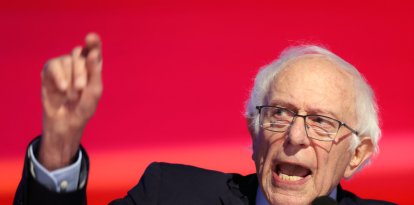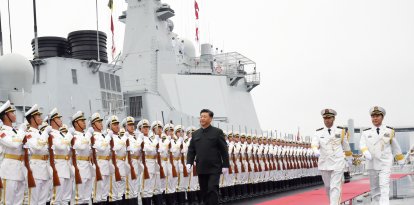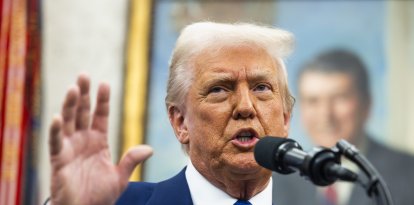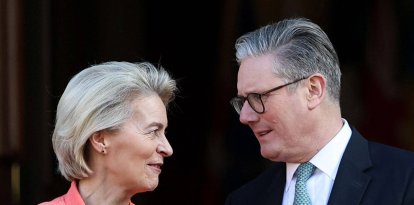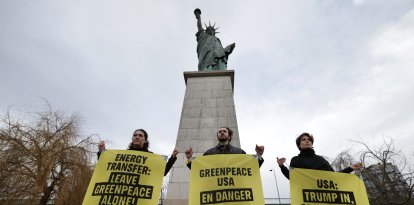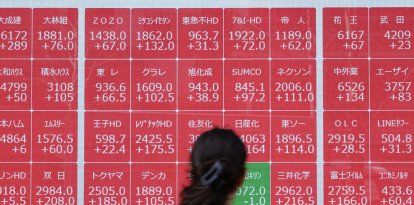Saudi Arabia 2034 or, in other words, Qatar 2022 2.0
The Middle East will once again be the focus of the soccer world's attention despite the handicaps and shortcomings of the region.
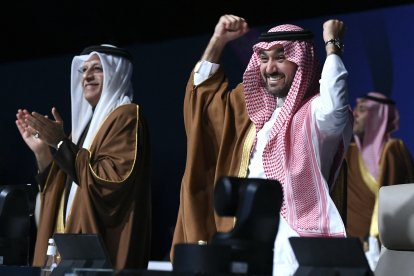
Saudi officials celebrate hosting the 2034 World Cup
On Oct. 31, 2023, FIFA President Gianni Infantino surprised lovers of “the beautiful game” when he announced that Saudi Arabia would host the World Cup 2034, the biggest soccer event on the planet for national teams. The decision was then ratified 14 months later, on Dec. 11, 2024, at a congress held via videoconference.
Saudi Arabia 2034 prospered and went ahead after other nations (some proposals were joint to hold a World Cup in several countries, as happened in 2002 with South Korea and Japan or as will happen in 2030 with Spain, Portugal and Morocco acting as hosts) withdrew their bid before making it official. The delegates of the 211 federations that make up FIFA gave the green light to a project that is now a reality.
It will be the third time that a Asia will host the top national team tournament, after the aforementioned World Cup in Korea and Japan 2002 and the last one held, Qatar 2022. This will be the model to follow and the reference taken by Riyadh, taking into account the geographical, social and institutional similarities between the two countries to make its World Cup "a once-in-a-lifetime tournament," as underlined Saudi Arabian Football Federation (SAFF) President Yasser Al Misehal.
A parallel to Qatar 2022
No sooner had FIFA confirmed the 2034 World Cup designation than Al Misehal launched a message welcoming the entire world to Saudi Arabia, assuring all nations wanting to "share our beautiful country, our culture and our deep passion for soccer with open arms." But passion? Saudi Arabia is not a country that has stood out for being “deeply passionate” about soccer, not among its fans either. Nor has it excelled in the sport or contributed great players, just as with Qatar. But both nations, a little more than a decade apart, have won the much-prized accolade of hosting a World Cup, despite their shortcomings.
Just as Qatar did at the time, Saudi Arabia saw soccer (and sports in general) as an industry that would yield outstanding results, whether economic or to “clean up” a dubious image regarding whether state authorities respect individuals' customs, human rights and more. All this aside, the only way Riyadh found to make soccer one of its main assets to convey modernity and progress was through money, investing almost incalculable amounts to attract the best players in the world to its league: players like Cristiano Ronaldo, Neymar Jr. and Karim Benzema. Incidentally, this money from the royal coffers was deposited in what is known as the Public Investment Fund (PIF), Saudi Arabia's sovereign wealth fund.
One thing that must be mentioned is human rights. Because Saudi Arabia is within the circle of countries that are in the spotlight for not respecting them, just like Qatar. An answer for this was demanded the Norwegian Football Federation in that congress where the name of Saudi Arabia was confirmed as host of the 2034 World Cup. This was also recalled by associations and some NGOs, which assured that the lives of the people who will collaborate and work in the construction and remodeling "are in danger," as reported by AFP. However, Riyadh is starting to find allies to defend it in this matter, such as the English Football Association (FA), which assured that LGBT citizens "will be safe and welcome," something that has also been questioned.
Another aspect to take into account is the infrastructure, key to the proper development and operation of a major event, such as a World Cup. Saudi Arabia has presented 15 different stadiums, some of which look like something out of science fiction movies, to host all the games played in its World Cup. Only eight of them are finished and operational. The rest are under construction or have not even broken ground, a situation that also happened in Qatar, when the country had to accelerate the projects because they were not going to be finished for its World Cup. Although in their favor, it must be said that there is still a decade to go before the national teams land in Saudi Arabia, so there is plenty of time to complete them. The country is aware that showcasing futuristic stadiums and infrastructure, such as NEOM, a venue built on a cliff with holograms and flashing lights, is one of the best marketing tools it has to claim that its World Cup will be "a once-in-a-lifetime tournament."
Finally, the temperatures cannot be ignored. In Qatar, FIFA was forced to move a tournament that traditionally takes place between June and July to November and December, because no one is able to walk outside, let alone play soccer, due to the heat, completely altering the soccer calendar. This same thing will happen in Saudi Arabia in 2034, as it has similar climate characteristics to its neighbor.
RECOMMENDATION

